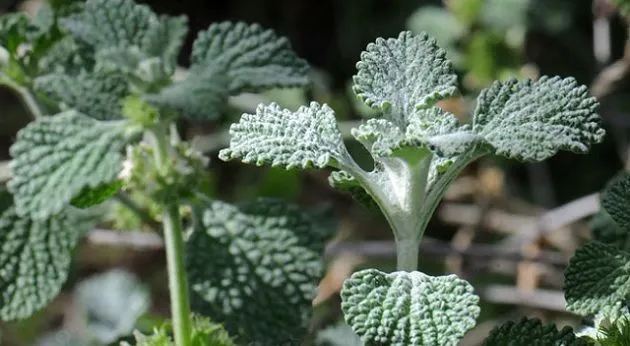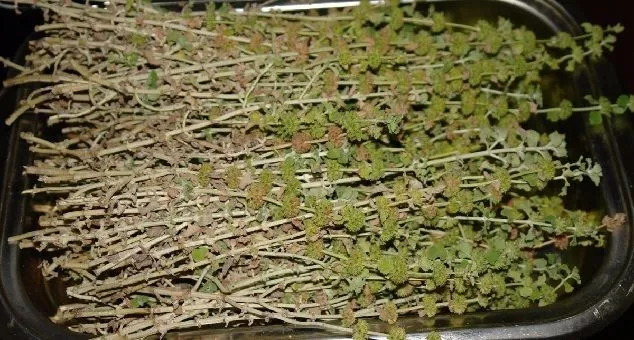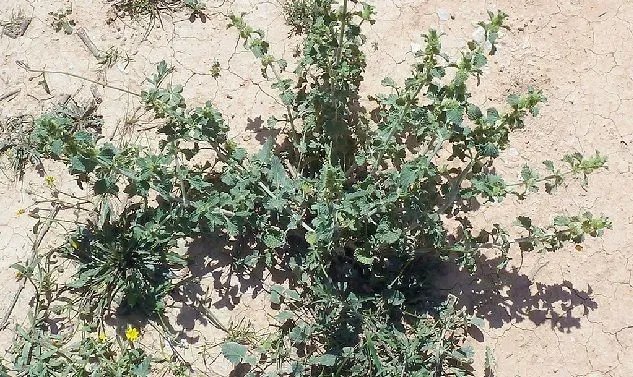The horehound (Marrubium vulgare) is a medicinal plant that has managed to climb positions in the hall of fame given the effectiveness of its healing action.
This is based on the great potential and concentration of its extracts and oils, which we will see below. A plant with many healing remedies and with great acceptance of scientific entities.
Today, it is possible to buy it in many (if not all) herbalists alone or mixed with other compounds to improve its taste. And, as you will see, it is in its well-known bitterness where the medicinal solutions it offers lie.
Table of Contents
Antiquity of Marrubium vulgare
The term «horehound plant» comes from Latin marrubium, which in turn could derive from a ancient city of Rome known as Maria Urbs or from the Hebrew Marrob. This mixture of words has a meaning similar to that of mixture or bitter juice.

Already at this time, both Roman and Egyptian civilizations (known as the seed of Horus) used it to counteract the poison of other plants or in sanatorium rituals.
It was also used by important civilizations such as the Greeks and, later, the Arabs, who knew balsamic properties.
Summary information
- Scientific name: marrubium vulgare
- Known common names: horehound, toad grass, Cuyano lemon balm
- Family: Lamiaceae
- Distribution: distributed in many countries (including in mountainous areas of the Spanish peninsula)
- Habitat: rustic species that is usually identified on the edges of rural roads
- Flowering: between spring and summer
It is a perennial herb, very similar physically to peppermint in its leaves, texture and color. Lilac or whitish flowering that happens in the months with good temperatures (late spring and early summer).
Today it is considered a weed that grows on the edges of rural roads and the shoulders of roads.
It was spread by European settlers almost all over the world, being a well-known medicinal plant in the American continent.
For medicinal purposes the stems and leaves are collected just before flowering. The parts are dried in thin layers, in the shade and in a well-ventilated place.
Active ingredients of Marrubium vulgare
It is a plant characterized by its high concentration of elements used in modern medicine today.
Its main asset is the marrubiin and the marrubic acid, bitter active ingredients that have a great digestive effect.
- Diterpene lactones (bitter principles): marrubiin (1%)
- Other diterpenes (horehound, peregrinol, vulgarol)
- Tannins (2-3%)
- Phenolic acids (marrubíico acid)
- Choline (bitter substance)
- Mineral salts (iron, potassium and other elements)
- Saponosides
- Flavonoids such as apinenin, luteolin and vitexin
- Marrubin (diterpetno)

Medicinal properties of horehound
- Expectorant action, relieves problems of the respiratory system
- Vasodilator properties
- Relieves stomach pain, stimulating the formation of bile and gastric juices
- Fights anemia due to its iron content (like turmeric)
- Facilitates the elimination of gases and flatulence
- Reduces the action of intestinal parasites
- In massage, it relieves the pain caused by rheumatism
- Your bitterness stimulates the salivary glands and appetite
- Activates the immune system
- It has diuretic action and prevents fluid retention
- Hypoglycemic action, reducing blood sugar levels
- It has a healing effect on skin wounds (burns, dermatitis, acne and eczema)
Of all these medicinal properties, the European Scientific Cooperative on Phytotherapy and the Agency European Medicines endorses the following medicinal properties, having undergone scientific studies.
Endorsed medicinal properties
- Increased appetite
- Reduces the production of gas and flatulence (dyspeptic disorders)
- Expectorant action in situations of colds and colds
Relief for cough and bronchitis
Many ingredients in antitussive syrups and pills contain extracts that have been extracted from this medicinal plant.
This is due to the presence of natural compounds known as diterpenes (specifically marrubin). This characteristic element of horehound increases the expectorant capacity and opens the airways, improving the entry of air and reducing wet cough or with the presence of mucus. [See more information]
Cyentific research has shown antispasmodic and analgesic capacity, allied to acute coughing attacks that can cause pain in the throat. [STUDIO]
In front of the bronchitis, horehound is an excellent ally for, as we have said, its ability to falicilitar the elimination of mucous membranes. These mucus, when fixed in the lungs, can cause serious respiratory infections.
Its vasodilator activity facilitates the flow of oxygenated blood and the opening of the airways. [INFORMATION ADDITIONAL]
Improves digestive health
The excerpt marrubina (oil contained in 6.5% in horehound) has a characteristic bitter taste and medicinal properties to speed up digestion. It offers effects against dyspepsia or indigestion from heavy meals that delay the body’s ability to digest. [STUDIO]
Specifically, this characteristic bitterness of marrubina is able to activate the production of gastric juices and acids in a more effective way.
Properties of horehound by infusion
Classic infusion with extracts of Marrubium vulgare
• 1 teaspoon horehound leaves
• 1 cup hot water
Boil the water and add a teaspoon of horehound next to a teaspoon of mint or orange peel.
Bring just before boiling and let stand for a few minutes. Strain and take two or three cups a day 10 minutes after meals.
How its taste is very bitter, often it is usually combined with sweeter medicinal plants or directly added sugar or combined with sweet fruits (figs) or honey.
Bath with horehound stems and flowers
Boil for 5 minutes 6 liters of water, 1 kg horehound with leaves, stems and flowers. Add to bath water.
Baths should be repeated several times to obtain effects.
Contraindications of toad grass
Important: You should not consume horehound infusion if you are pregnant, breastfeeding, if you suffer from hypotension or if you suffer from gastritis.
The horehound it is discouraged in hypersecretory dyspepsias, as well as in case of nausea and vomiting, in pregnancy and, due to its bitter taste, during lactation.
- In high concentrations it can produce cardiac arrhythmias, alteration of the menstrual cycle or produce abortion.
- By reducing tension it is contraindicated for those who have hypotnesion.
- Its bitter principles stimulate the secretion of hydrochloric acid, so it should be avoided in case of gastritis or gastroduodenal ulcer.

Commercial products
In the herbal market we can find many products to use the properties of horehound, alone or mixed with other extracts.
Healing use for throat irritations and breathing problems
- Infusions of Marrubium vulgare with eucalyptus, mauve, thyme, licorice, mullein, plantain, hawthorn and poppy.
Dried leaves dehydrated for use directly in infusions
Concentrated capsules (micronized powder) to ingest instead of preparing infusions.
